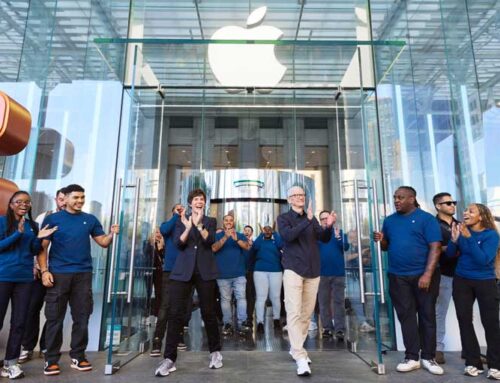The Transformative Power of AI in Smarter Investing
April 8, 2025
The investment world is experiencing a seismic shift as artificial intelligence transforms traditional strategies into data-driven powerhouses.
Gone are the days when successful investing relied solely on human intuition and basic market analysis. Today’s investment landscape demands sophisticated tools that can process vast amounts of information at unprecedented speeds and identify patterns invisible to the human eye.
AI’s growing presence in finance isn’t merely a technological novelty; it represents a paradigm shift in how wealth is managed, risks are assessed, and opportunities are discovered across investor categories, from novices to seasoned professionals.
The journey toward AI-powered investing didn’t happen overnight. What began decades ago with simple rule-based algorithms has evolved into sophisticated cognitive systems capable of learning and adapting. Early algorithmic trading merely followed predetermined instructions, executing trades when specific conditions were met.
Machine learning algorithms now process millions of data points to identify profitable patterns and market anomalies. Leading hedge fund recently reported its ai for stock trading platform detected a correlation between weather patterns and commodity futures that human analysts had overlooked for years.
Deep learning networks continuously improve through experience, becoming more effective at recognizing complex market patterns with each transaction they process. These systems can simultaneously analyze thousands of stocks across multiple markets, identifying opportunities that would require an army of human analysts.
AI has transformed portfolio construction by enabling real-time optimization based on market conditions. Unlike traditional rebalancing methods, AI-powered systems continuously adjust asset allocations to maintain an ideal risk-reward balance.
In risk management, advanced AI models predict market downturns with high accuracy, monitoring portfolios around the clock and proactively implementing hedging strategies when needed. This proactive approach helps mitigate losses before they escalate.
As the financial landscape grows increasingly complex, AI-driven technologies are transforming how investments are analyzed, executed, and optimized.
Today’s advanced trading platforms leverage reinforced learning, where AI continuously improves through trial and error. These systems detect profitable patterns across various timeframes, from microsecond price shifts to long-term market cycles.
- AI-driven trading algorithms adapt dynamically to market fluctuations.
- Proprietary AI models developed by leading firms consistently outperform traditional strategies.
- AI trading strategies now dominate daily trading activity on major exchanges.
Forward-thinking investors use alternative data sources like satellite imagery, social media sentiment, and location-based foot traffic to gain deeper market insights. AI synthesizes these diverse inputs for a comprehensive market outlook.
- AI systems process unstructured data to uncover hidden market trends.
- Real-time sentiment analysis enhances predictive accuracy.
- Alternative data-driven funds have demonstrated superior performance over traditional models.
Modern AI investment platforms tailor strategies to individual goals, risk tolerance, and investment timelines. These systems evolve with changing client needs and market conditions.
- AI-driven recommendations enhance portfolio performance and client engagement.
- Adaptive strategies ensure investments align with shifting financial objectives.
- Personalized AI platforms improve decision-making efficiency for investors.
Enhanced Returns Through Sophisticated Analysis
- AI-driven portfolios outperform traditional strategies by an average of 3.7% annually over five years (Stanford, 2023).
- AI identifies hidden market relationships and acts without emotional bias, improving decision-making.
- Provides a structural advantage in increasingly efficient markets.
Operational Efficiency and Cost Reduction
- AI-powered research tools reduce securities analysis time by over 80% (Goldman Sachs).
- Analysts can cover more assets with greater depth and accuracy.
How is AI changing stock trading strategies?
AI-driven trading platforms use machine learning and reinforced learning to detect profitable patterns, adapt to market fluctuations, and execute trades at high speeds, significantly improving efficiency and returns.
Can AI-powered investment tools replace human financial advisors?
While AI enhances investment strategies with data-driven insights, human advisors remain valuable for personalized guidance, complex financial planning, and emotional decision-making support, creating a balanced AI-human approach.
What are the main advantages of AI in portfolio management?
AI optimizes asset allocations in real-time, enhances risk management through predictive analytics, and democratizes investment intelligence by making advanced financial tools accessible to retail investors at lower costs.
As AI transforms investment strategies, success depends on the extent to which these tools are integrated into investment processes. As AI enhances data analysis and decision-making, human judgment is still needed to define goals, manage risk, and address market volatility. Merging AI with prudent oversight leads to stronger, forward-looking portfolios.
Blog received on email
Search
RECENT PRESS RELEASES
Related Post


